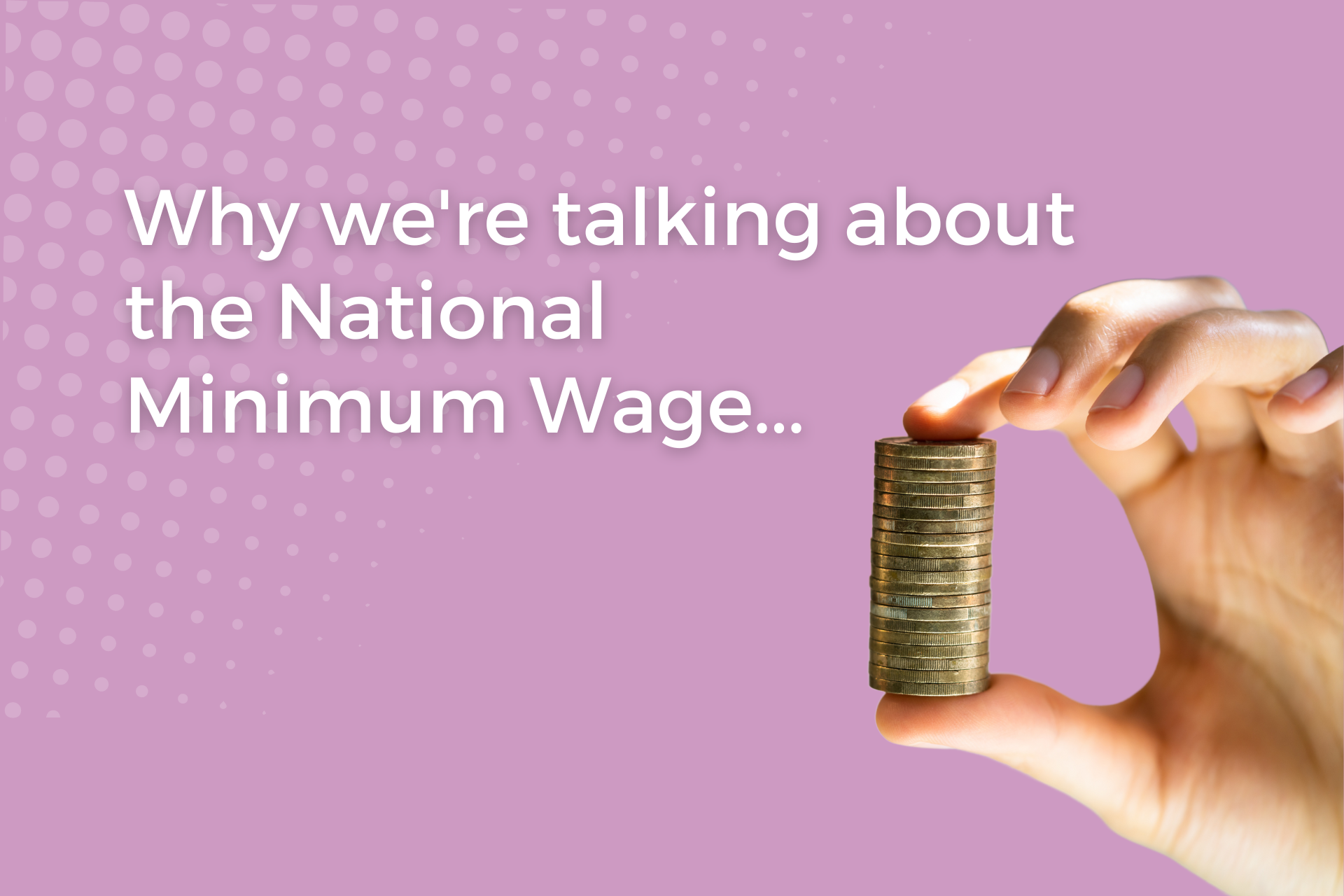
The official National Minimum Wage rate changed on 1st April 2021, entitling workers aged 23 and over to £8.91 per hour. In line with these changes, we decided to highlight the importance of the National Minimum Wage through a social media campaign which, in an attempt to educate, debunked some of the excuses given by employers who failed to pay it. We wanted to make it clear that compliance with the National Minimum Wage isn’t an option – it’s the law.
Why it’s an issue
The varying experiences of exploitation highlight that the issue is a complex social phenomenon. Labour exploitation exists on a continuum, with modern slavery at one end and less severe labour market violations, such as not paying the minimum wage, at the other. By focusing exclusively on the more extreme situations, lesser forms of violation can often be ignored – but these lesser violations are far more common, and their permissibility ensures the existence of forced labour. Workers who are most often affected by non-compliance with labour laws, such as the National Minimum Wage, are the most vulnerable to exploitation. It is the responsibility of all employers to ensure that they are following the law and ensuring that their workers are being paid the correct amount.
Here are some of the excuses given by employers that we highlighted through our social media campaign:
- “She doesn’t deserve the National Minimum Wage because she only makes the teas and sweeps the floors.”
- “I thought it was ok to pay foreign workers below the National Minimum Wage as they aren’t British and therefore don’t have the right to be paid it.”
- “My employee is still learning so they aren’t entitled to the National Minimum Wage.”
- “The National Minimum Wage doesn’t apply to my business.”
- “Uniform deductions meant my employee wasn’t paid the National Minimum Wage. It’s just an administrative error.”
- “It’s not a big deal if I don’t pay the National Minimum Wage. Nothing is going to happen.”
- “I shouldn’t have to pay the minimum wage, I sort them out with a cheap room to live in.”
- “They come in early to open and stay on to close up – but that’s not part of their shift so they don’t need to be paid for it.”
- “I deduct money from their wage for meals and equipment – but they’re fine with it!”
None of these are justifiable reasons not to pay someone the National Minimum Wage.
Enforcement of the National Minimum Wage
The Department for Business, Energy and Industrial Strategy (BEIS) is responsible for minimum wage policy, including the policy on compliance and enforcement. The HM Revenues and Customs (HMRC) is then responsible for enforcing National Minimum Wage legislation on behalf of the BEIS.
So, what happens if an employer is paying their employee below the National Minimum Wage? First and foremost, if the HMRC discovers a violation, they will launch an investigation into the accusation and send them a Notice of Underpayment (NoU), which sets out the arrears to be paid, the penalty for non-compliance (which can be as hefty as £20,000 per worker) and the requirement to pay workers the National Minimum Wage. Non-compliant businesses also run the risk of being named in the Government’s ‘Name and Shame’ Scheme, which calls out businesses if their total arrears owed to workers were more than £500 (or £100 if the employer has shirked its responsibilities in the past). Naming is automatic if the employers fail to pay the arrears and/or penalty.
The Name and Shame scheme was recently resumed under the Business Minister Paul Scully MP following a two year pause. The most recent naming in December 2020 saw 139 companies listed – including major household names such as Tesco and Pizza Hut. Collectively, these offending businesses failed to pay £6.7 million to their workers, in an unacceptable breach of employment law.
Exploitation within Hospitality
The Government’s 2020 Name and Shame list included a large number of businesses within the hospitality sector. The way the sector is structured and the fact that it commonly violates labour laws like the National Minimum Wage make it at high risk of modern slavery. This is largely due to three main systemic issues: complex operating models which breed a lack of accountability for worker welfare; market pressures that lead to unfair employment practices; and the high proportion of ‘low-skilled’ jobs attract more vulnerable workers. This means that, sadly, it is not uncommon for workers within the industry to endure pay violations, as well as other exploitative practices.
We must stomp out the labour market violations which rest on the less extreme end of the exploitation continuum, such as non-compliance with National Minimum Wage laws, if we have any hope of tackling exploitation on the whole.
Corporate Shift
We believe we have a responsibility to ensure businesses uphold labour law. To facilitate this, Shiva Foundation works with businesses to normalise ethical behaviour and ultimately fight modern slavery and exploitation. If we focus solely on identifying it once it’s happened, we will never end these crimes. Instead, we need to recognise the root causes of exploitation so we can work to disrupt them.
Some tools we have designed to support businesses with these efforts include:
- Our Stop Slavery Blueprint which has been designed specifically for the hospitality sector
- Our anti-modern slavery toolkit designed specifically for small and medium size enterprises
- Our modern slavery awareness training for hospitality students across the UK.
We work to strengthen labour market protections and as such, we think that it is fundamental to draw attention to the changes occurring to the National Minimum Wage and to reiterate the importance of businesses complying with it. We are calling on businesses to act responsibly, make sure they are following the law, and work to end the exploitation of the most vulnerable.
Need more information?
Employers can find more information here and workers can contact ACAS if they have an issue or a question about their entitlement.
By Gabriella Jiménez


